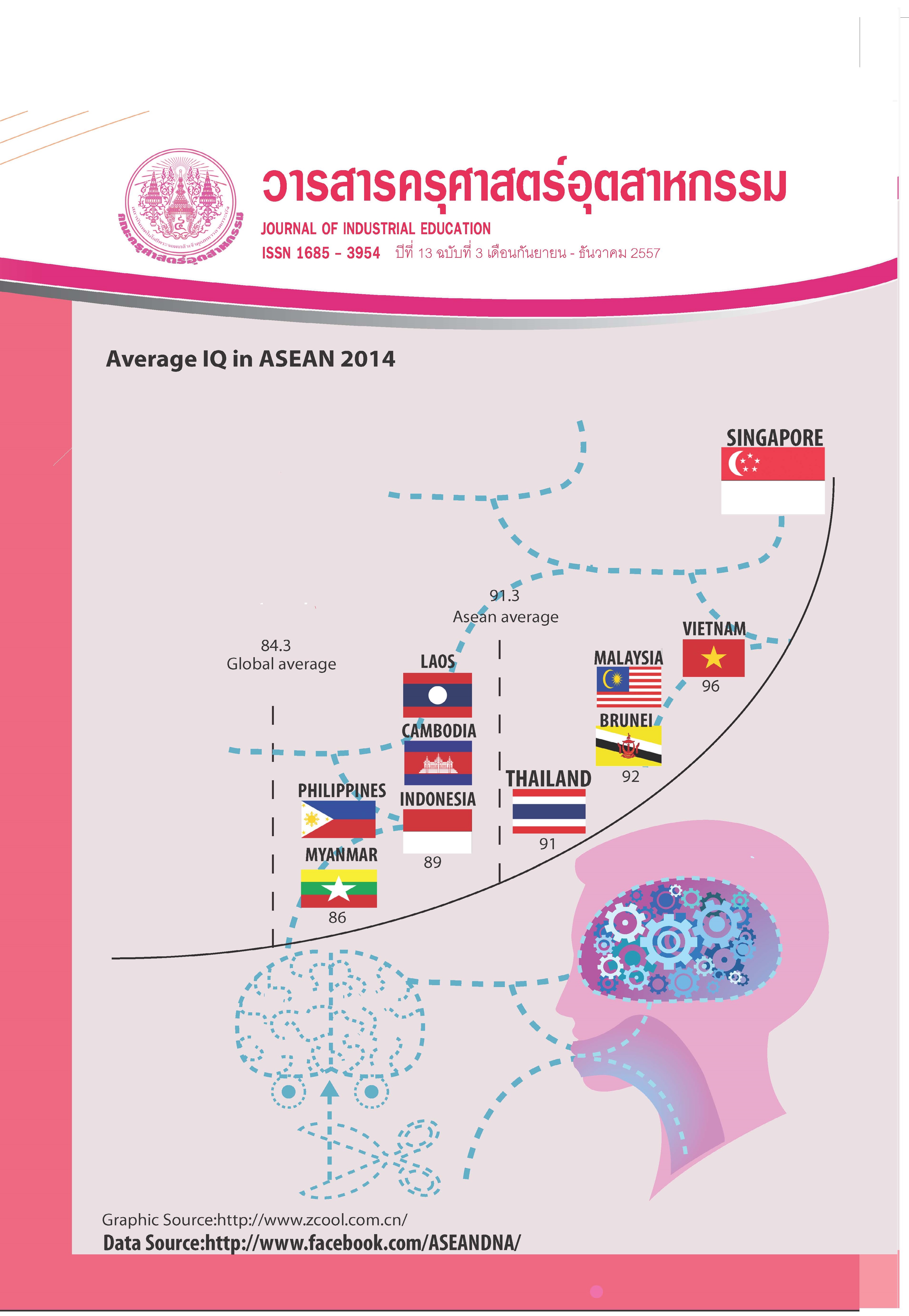Development Model of School Landscape Management for Environmental Conservation
Keywords:
School landscape, Management, Development, Model, Environmental conservationAbstract
The objective was to compare the mean scores between pretest and posttest of school landscape management knowledge, environmental education, inspiration of environmental conservation, and environmental conservation behavior and to develop trainers who are able to transfer knowledge of school landscape management for environmental conservation for others. Participation-Appreciation-Influence-Control (PAIC) was conducted and it was integrated with Three Dimensional Evaluations that were employed for exterminating the participation and Four Dimensional Evaluations were used for trainer role play evaluation. The quasi-experimental research was conducted with 26 high school students of Chiang Yuen School, Chiang Yuen District, Maha Sarakham Province. They were collected by purposive sampling technique anchored in criteria of public mind and commitment to participate via the whole research process. Three Dimensional Evaluations were employed for exploring the participation and Four Dimensional Evaluations were employed for trainer role play evaluation. One-way ANOVA was used to determine the mean scores difference of three and four groups.
After PAIC implemented, the results revealed that the mean scores of posttest of school landscape management knowledge, environmental education, inspiration of environmental conservation, environmental conservation behavior and training achievement were higher than pretest with statistical significance (p < 0.01for all aspects). Moreover, it also obtained the trainers who are able to transfer knowledge of school landscape management for environmental conservation for others. In present and future situations, mean scores were different with no statistical significance (p < 0.05 and p < 0.05). Additionally, the mean scores of Four Dimensional Evaluation were different with no statistical significance (p < 0.05).
References
[2] Nakpradub, S. (2013). Knowledge and Attitude Affecting Enterprise Resources Planning (ERP)System for Managing Officer Positions at Bangkok Spring Industrial Co.,Ltd. Journal ofIndustrial Education. 12(1), p. 106.
[3] Office of National Economic and Social Development Plan. (2010). The Tenth National Economic and Social Development Plan B.E. 2550-2554. Retrieved from: htt://www.nesdb.go.th/Default.aspx?Tabid=90 (Sep 19,2013).
[4] Kotchachote, Y., Thiengkamol, N.,&Thiengkamol Khoowaranyoo, T. (2013a).Casual Relationship Model of Forest Fire Prevention. European Journal of Scientific Research, 104 (3), p. 519-532.
[5] Thiengkamol, N. (2009a). The Great Philosopher: the Scientist only know but Intuitioner is Lord Buddha. Bangkok: Prachya Publication.
[6] Thiengkamol, N. (2009b). The Happiness and the Genius can be created before Born.Bangkok: Prac0hya Publication.
[7] Thiengkamol, N. (2011e). Environment and Development Book 1. (4th ed.).Bangkok: Chulalongkorn University Press.
[8] Thiengkamol, N. (2011a). Holistically Integrative Research (2nd ed.).Bangkok:Chulalongkorn University Press.
[
9] Thiengkamol, N. (2012c). Model of Psychological Trait Affecting to Global Warming Alleviation. European Journal of Social Sciences, 30 (3), p. 484-492.
[10] Gonggool, D., Thiengkamol, N., Thiengkamol,C. (2012a). Development of Environmental Education Volunteer Network through PAIC Process. European Journal of Social Sciences, 32 (1) p. 136-149.
[11] Nakpradub, S. (2013). Knowledge and Attitude Affecting Enterprise Resources Planning (ERP)System for Managing Officer Positions at Bangkok Spring Industrial Co., Ltd.Journal of Industrial Education. 12(1), p. 106.
[12] Thiengkamol, N. (2010b). Urban Community Development with Food Security Management: A Case of Bang Sue District in Bangkok. Journal of the Association of Researcher, 15 (2), p. 109-117.
[13] Thiengkamol, N. (2011a). Holistically Integrative Research (2nd ed.). Bangkok: Chulalongkorn University Press.
[14] Chaiyong, P. (1995). Landscape Ornament.Bangkok: Pim Hang Ltd, Partnership 9 119 Printing Technique.
[15] Farina, A. (2000). Landscape Ecology in Action. Netherlands : Kluwer Academic Publishers.
[16] UMassAmherst, 2014). Green School Landscape Management Track. Retrieved from:https://extension.umass.edu/Landscape/educat Ion/green-school-landscape-management-tack (Jan 12,2010).
[17] InWent-DSE-ZEL. (2002). Regional Training Course “Advanced Training of Trainer”.Grand Jomtien Palace. Pattaya City. Thailand.
[18] Thiengkamol, N. (2009c). Environment and Development Book 2. (Food Security Management).Bangkok: Chulalongkorn University Press.
[19] Thiengkamol, N. (2012d). Model of Psychological Factors Affecting to Global Warming Alleviation. International Proceedings of Economic Development and Research, p. 44, 6-12.
[20] Langly, A. (1998). “The Roles of Formal Strategic Planning” Long Range Planning.Vol. 21, No.1 p. 3-120.
[21] Sproull, N.L. (1995). Handbook of Research Method: A Guide for Practitioners and Scientific teachers in the Social Science.(2nd ed.). Metuchen, NJ: Scarecrow Press.
[22] InWent-DSE-ZEL. (2002). Regional Training Course “Advanced Training of Trainer”.Grand Jomtien Palace. Pattaya City. Thailand.
[23] Thiengkamol, N. (2012d). Model of Psychological Factors Affecting to Global Warming Alleviation. International Proceedings of Economic Development and Research, p. 44, 6-12.
[24] Thiengkamol, N. (2009c). Environmentand Development Book 2.(Food Security Management).Bangkok: Chulalongkorn University Press.
Downloads
Published
How to Cite
Issue
Section
License
"The opinions and contents including the words in papers are responsibility by the authors."
"ข้อคิดเห็น เนื้อหา รวมทั้งการใช้ภาษาในบทความถือเป็นความรับผิดชอบของผู้เขียน"



